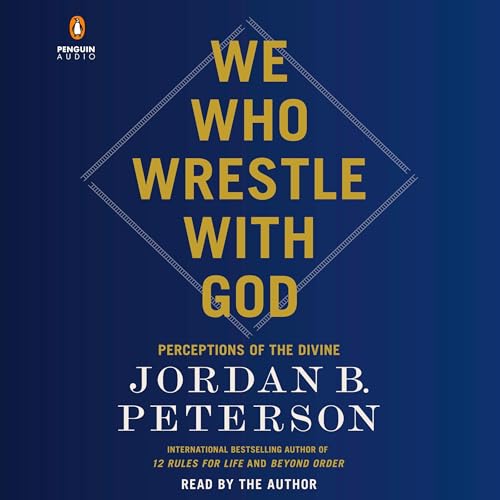Jordan B. Peterson – We Who Wrestle with God Audiobook
Jordan B. Peterson – We Who Wrestle with God Audiobook (Perceptions of the Divine

text
We Who Wrestle with God by Jordan B. Peterson: A Comprehensive Summary
Jordan B. Peterson, a renowned clinical psychologist and cultural commentator, delves deep into the complexities of faith, belief, and the human condition in his thought-provoking work, We Who Wrestle with God. This book serves as an exploration of the eternal struggle between humanity and the divine, examining how individuals grapple with spirituality, morality, and the search for meaning in an increasingly secular world.
Exploring the Intersection of Psychology and Theology
At the heart of Peterson’s analysis is the intricate relationship between psychological well-being and spiritual belief. Drawing from his extensive background in clinical psychology, he argues that religion and spirituality play a crucial role in shaping moral frameworks and providing individuals with a sense of purpose. Peterson contends that the decline of traditional religious structures has left a void, leading to existential crises and a search for alternative sources of meaning.
The Archetypal Struggle
Peterson employs Jungian archetypes to illustrate the perennial battle between order and chaos, often personified by divine and infernal figures. He posits that this struggle is not merely mythological but is reflective of the internal conflicts that individuals face. By wrestling with these archetypal narratives, people can better understand their own fears, aspirations, and the moral choices that define their lives.
Moral Responsibility and Free Will
A significant portion of the book is dedicated to the concepts of moral responsibility and free will. Peterson emphasizes that embracing personal responsibility is essential for psychological health and societal stability. He explores how religious teachings often encapsulate moral codes that guide behavior, arguing that without such guidelines, individuals may struggle to navigate ethical dilemmas and maintain social cohesion.
The Role of Suffering and Redemption
In We Who Wrestle with God, Peterson does not shy away from the darker aspects of human existence, such as suffering and the capacity for evil. He examines how various religious traditions address suffering and offer pathways to redemption. Peterson suggests that confronting and understanding suffering is fundamental to personal growth and the development of resilience.
Secularism and the Quest for Meaning
Addressing the rise of secularism, Peterson critiques the notion that society can flourish without collective belief systems. He warns of the potential dangers of nihilism and moral relativism, advocating for a balanced approach that integrates empirical understanding with the wisdom of traditional beliefs. Peterson encourages readers to seek meaning through a synthesis of scientific inquiry and spiritual contemplation.
Practical Applications and Personal Growth
Beyond theoretical discussions, the book provides practical insights for individuals seeking to navigate their own spiritual journeys. Peterson offers strategies for integrating religious or spiritual practices into daily life, promoting mental health, and fostering a sense of community. He underscores the importance of ritual, storytelling, and symbolic actions in maintaining psychological well-being.
Conclusion
We Who Wrestle with God stands as a compelling examination of the enduring human quest for understanding and meaning in relation to the divine. Jordan B. Peterson bridges the gap between psychology and theology, offering readers a nuanced perspective on how faith and reason can coexist to enhance both individual lives and broader society. Through his insightful analysis, Peterson invites us to engage in our own wrestling with profound existential questions, ultimately advocating for a life grounded in responsibility, meaning, and the pursuit of truth.